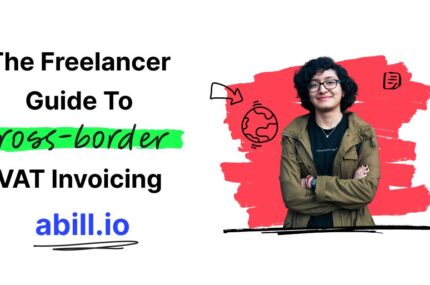Freelancers often face several challenges, including the need to manage their own taxes. This can be a serious challenge, as freelancers are responsible for setting aside money for tax payments throughout the year, rather than having taxes withheld from their salary as traditional employees do. Furthermore, freelancers may need to pay estimated taxes quarterly, which can be difficult to manage without a steady income. Finally, freelancers may need to navigate complex tax laws and keep track of deductible expenses, which can be time-consuming and complicated. Most EU freelancers working on digital platforms are likely not declaring income and paying taxes for the aforementioned reasons, but under the new EU DAC7 directive, freelancers will need to find ways to formalize and legalize this income.
What is DAC7?
DAC7 (an abbreviation for the 7th amendment to the EU Directive on Administrative Cooperation) is a Council Directive adopted by the European Union, which amends the original Directive 2011/16/EU. In layman’s terms, this directive extends existing tax transparency rules to include digital platforms. Under this directive, every digital platform operator providing services in the EU must now register for a platform operator ID and report income earned by sellers using their platform.
The goal of these amendments is to streamline tax cooperation between EU member states and facilitate tax collection for local tax authorities. It also means expanding the scope of automatic information exchange between member states’ tax authorities.
According to the DAC7 proposal, digital platforms will be required to report to local tax authorities the income earned by sellers of goods and services using their platforms. The rules are proposed to affect both EU resident digital platform operators and foreign digital platform operators outside the EU.
Reportable activities will include:
- Rental of real estate (Airbnb);
- Provision of personal services (Fiverr, Upwork, 99designs, Toptal, Twitch);
- Sale of goods (Amazon, Ebay, Etsy);
- Rental of any form of transport (Turo, etc.);
- And investments and loans in the context of crowdfunding.
Exceptions
- Company websites that only sell that company’s goods;
- Payment processing platforms (e.g., PayPal);
- Platforms where users can list goods for sale, but the platform itself does not facilitate the sale transaction or is unaware of the transaction value (e.g., Facebook Marketplace).
Reportable information will include:
- Demographic information on sellers;
- Tax identification number (TIN);
- VAT registration number;
- Information on the amounts paid to sellers and platform fees incurred by them each quarter.
When can I expect my earnings to be reported to local tax authorities?
Reporting will begin in early 2024 for the period starting January 1, 2023.
How will this affect freelancers?
The DAC7 directive will affect all freelancers who do not have a registered legal entity (sole trader, self-employed, etc.) and have not applied for a VAT ID number. A reminder: all legal entities in the EU providing services and goods to cross-border clients must have a VAT ID that must be included in all commercial documentation, e.g., invoices.
I receive money from Upwork. What should I do to legalize this income if I do not have a company?
Abillio is a cross-border invoicing and tax compliance platform that provides a company-as-a-service solution for freelancers and digital content creators to legally receive income from digital platforms and help calculate and pay income tax.
With Abillio, you do not need to establish a legal entity, open a bank account, or apply for VAT payment – with Abillio’s company-as-a-service solution, you can immediately start your freelance business.


